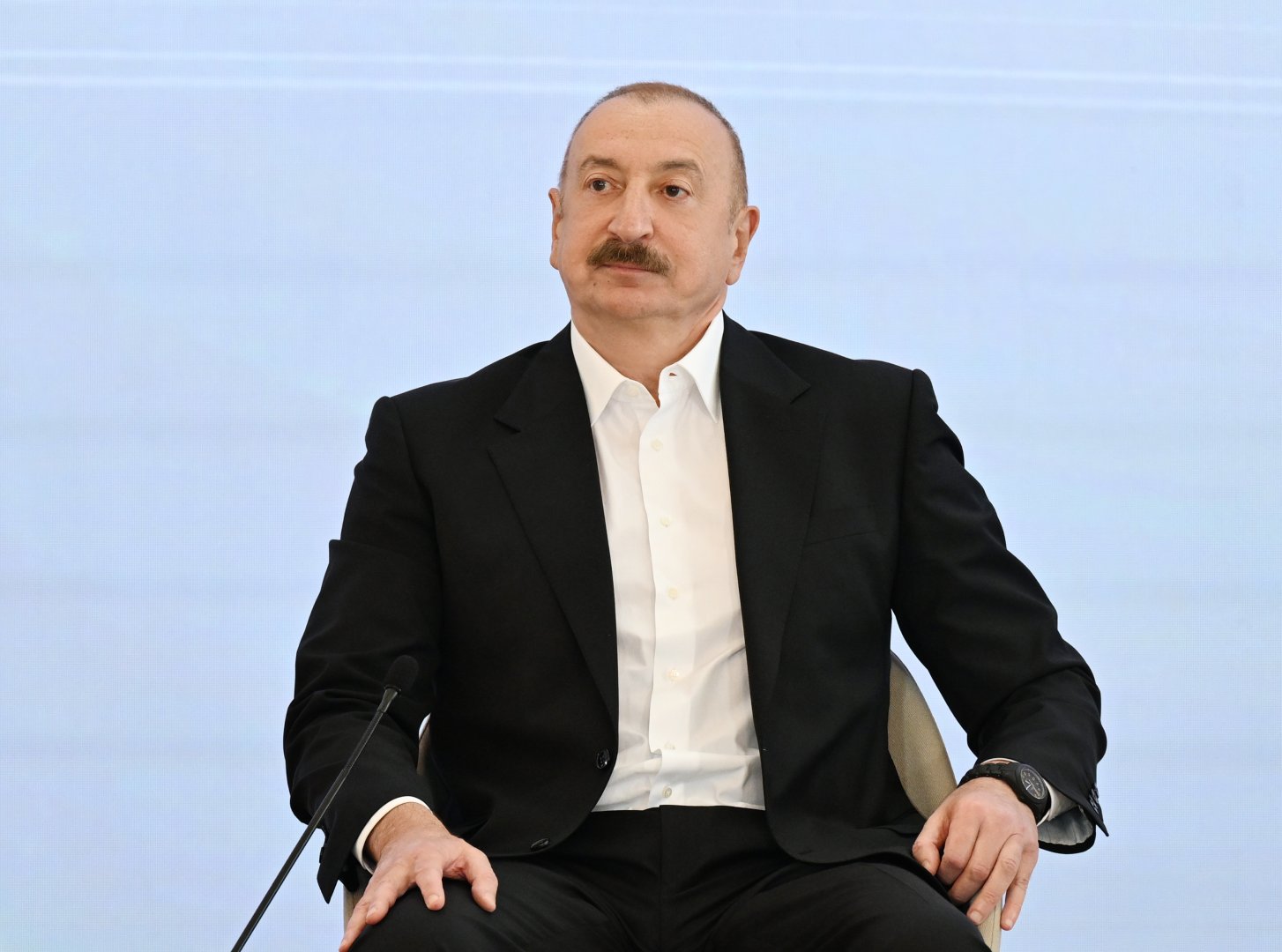BAKU, Azerbaijan, July 26. Under President Ilham Aliyev’s leadership, Azerbaijan has emerged as a key driver of green transformation on both regional and global scales.
The country is pursuing a comprehensive, strategic approach to developing green energy, spanning everything from the rollout of renewables in the liberated territories to large-scale international partnerships with top global companies. Azerbaijan is working with partners such as Masdar (UAE), ACWA Power (Saudi Arabia), and several major Chinese energy firms to ensure sustainable growth in its energy sector.
As President Ilham Aliyev noted during the 3rd Shusha Global Media Forum, held in Khankendi on July 19 under the theme “Digital Pathways: Strengthening Information and Media Resilience in the Age of AI”, Azerbaijan’s green agenda is very ambitious.
“By 2030, based on already signed investment contracts, we will have a minimum of six gigawatts of green energy, including solar, wind, and hydro. Hydro is primarily produced here in this area — in Karabakh and East Zangezur. We have already inaugurated more than 30 small hydropower stations with a total capacity of 280 megawatts. So, really, our green agenda is very ambitious,” the head of state said.
President Ilham Aliyev’s green agenda extends well beyond Azerbaijan’s borders. Under his leadership, the country has become a key player in developing regional green energy corridors that link Central Asia with Europe. These include the Trans-Caspian Green Corridor connecting Azerbaijan, Kazakhstan, and Uzbekistan, as well as a major project to lay an undersea power cable across the Black Sea, linking Azerbaijan with Georgia, Romania, and Hungary - an initiative that is also gaining growing interest from other European nations.
As President Ilham Aliyev has emphasized, Azerbaijan will become a hub for green energy transmission, production, and distribution.
“With respect to the regional agenda, I would also mention green energy projects. Today, not only in Azerbaijan but also in the countries of Central Asia, there are huge investments in solar and wind energy power stations. During COP29 last November in Baku, the Presidents of Uzbekistan, Kazakhstan, and Azerbaijan signed an agreement to build a subsea green energy cable under the Caspian Sea to connect the future green energy of Central Asia with Azerbaijan’s infrastructure. Prior to that, a couple of years earlier, Azerbaijan, together with Georgia, Romania, and Hungary, also signed a document on the construction of a green energy cable under the Black Sea. So you can see that this connectivity today goes beyond the region of the Caucasus, Central Asia, and Europe - it unites them. And the meeting point, I would say, is Azerbaijan - because you cannot change geography, whether you like it or not. But geography alone does not guarantee security, safety, or progress. You have to use your geography for good purposes. We can already foresee - based on what has been signed between us and the European countries, and the countries of Central Asia - that Azerbaijan will become a kind of hub for green energy transmission, production, and distribution, with very big potential to grow and become even more global than it is today,” said President Ilham Aliyev.
Azerbaijan’s efforts align closely with the global climate agenda, as the country continues to play an active role in tackling climate change. A major milestone in this effort is Azerbaijan’s presidency of the 29th UN Climate Change Conference (COP29). Under the steady leadership of President Ilham Aliyev, the Baku summit became a turning point, delivering tangible outcomes and advancing meaningful progress on global climate goals.
One of the top priorities of Azerbaijan’s COP29 presidency has been highlighting the vulnerability of small island developing states, which are among the hardest hit by climate change. Azerbaijan has acted as a voice of solidarity, pushing for stronger international dialogue on support mechanisms and advocating for fair, inclusive climate financing.
As President Ilham Aliyev noted, Azerbaijan sees itself as a bridge between the Global South and the Global North.
"I think we managed to achieve that. One of the important achievements of COP29 was that we managed to create a constructive atmosphere and, with our personal contribution, achieved agreement on Article 6 regarding the functioning of carbon markets — an issue that had been under discussion for at least the last 10 years. That is a very important and tangible result of COP29. Another important result, in our view, is that we managed to agree on increasing the funding to tackle climate change — from 100 billion US dollars, which was the figure prior to COP29, to 300 billion US dollars. We know that some countries are not satisfied with that, but we must be fair: we managed to triple the funding," President Ilham Aliyev said.
Thus, Azerbaijan’s green strategy under the leadership of President Ilham Aliyev is a multi-level model - from sustainable domestic development to regional unification and global influence, based on the principles of responsibility, inclusiveness and sustainability.
Azerbaijan is not only implementing a large-scale program to transition to green energy, but also forming a new architecture of regional and global energy cooperation. Successful integration of domestic reforms, strategic partnerships and climate diplomacy has allowed the country to take a leading position in the international environmental arena.
The results of COP29, achieved thanks to the initiative of President Ilham Aliyev, confirmed that Azerbaijan is not only a reliable partner, but also an inspiring example for other developing countries.
In the context of the global climate crisis, the green agenda of Azerbaijan has become an integral part of the solution, and its geopolitical and energy significance - a support for the sustainable future of the entire region and beyond.







